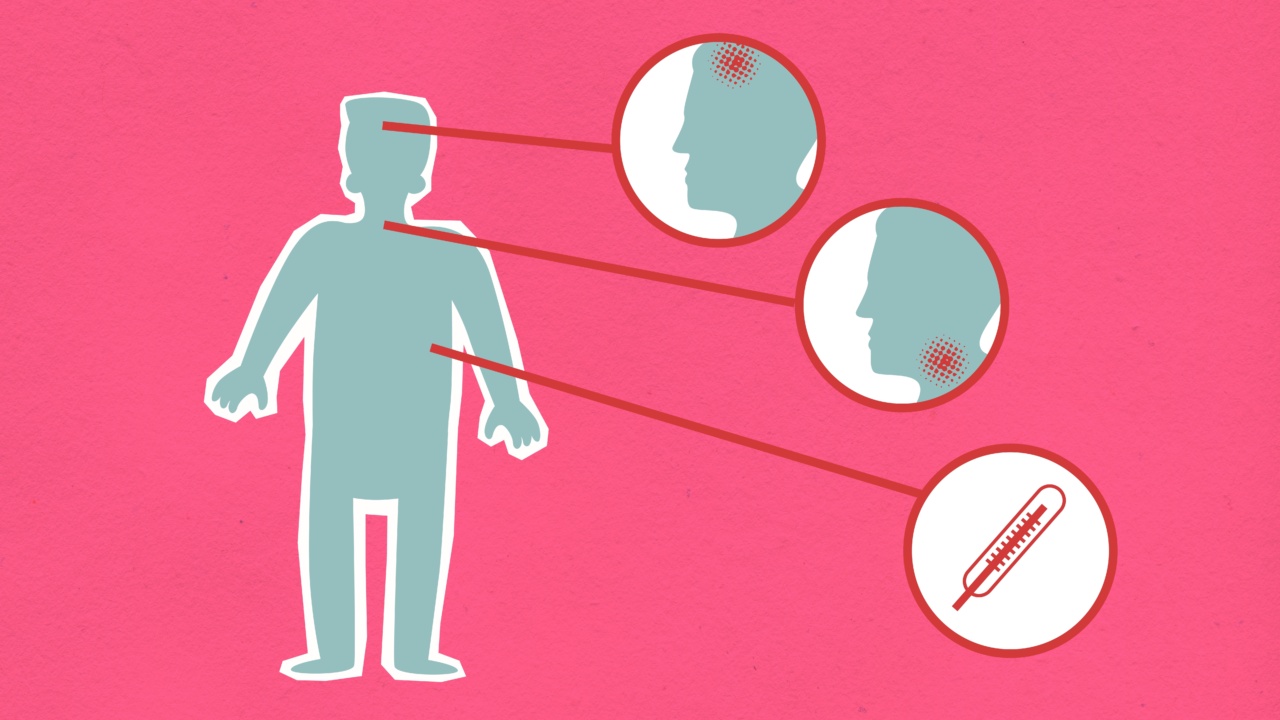COVID-19, the deadly virus that first emerged in Wuhan, China, in December 2019, has been responsible for infecting millions of people and causing deaths across the globe. Its characteristic symptoms include cough, fever, and difficulty in breathing.
However, many people who are infected with COVID-19 also complain of a sore throat, which, in some cases, could indicate a heart problem. Let’s explore this phenomenon in detail.
Understanding COVID-19’s Impact on the Heart
COVID-19 is primarily a respiratory illness and affects the lungs. However, as doctors and researchers delve deeper into the virus, they are slowly unraveling its impact on other organs, including the heart.
Recent studies have shown that COVID-19 can cause direct and indirect damage to the heart muscle, leading to various complications, such as:.
1. Acute Myocarditis
COVID-19 can cause inflammation of the heart muscle, a condition known as myocarditis. The viral infection can directly affect the heart, leading to an abnormal immune response that triggers inflammation.
Myocarditis can cause symptoms such as shortness of breath, chest pain, and an irregular heartbeat.
2. Acute Coronary Syndromes
COVID-19 can cause acute coronary syndromes, a type of heart disease that is marked by reduced blood flow to the heart. Blood flow to the heart can be hampered due to inflammation, blood clots, or plaque rupture.
Acute coronary syndromes can cause chest pain, shortness of breath, and other symptoms.
3. Arrhythmias
COVID-19 can cause abnormal heart rhythms, known as arrhythmias. These abnormal rhythms can be caused due to inflammation, damage to the electrical system of the heart, or drug interactions.
Arrhythmias can cause symptoms such as palpitations, dizziness, and fainting.
4. Heart Failure
COVID-19 can cause heart failure, a condition where the heart is unable to pump blood effectively.
Heart failure can be caused due to viral myocarditis or by the increase in demand for oxygen by the body, due to the respiratory distress caused by COVID-19. Heart failure can cause symptoms such as shortness of breath, coughing, and swelling in the legs and abdomen.
Given the many ways in which COVID-19 can affect the heart, it is important to understand the symptoms that indicate heart problems, including a sore throat.
Why a Sore Throat may Indicate a Heart Problem
A sore throat, while not a characteristic symptom of COVID-19, can indicate a heart problem, particularly in older adults who may have pre-existing heart disease or risk factors, such as high blood pressure, diabetes, or obesity.
A sore throat can indicate the presence of a throat infection, which, if left untreated, can lead to an increase in systemic inflammation. Inflammation, in turn, can exacerbate pre-existing heart disease, leading to complications such as heart attack, heart failure, and stroke.
Additionally, the severity of COVID-19 infection can impact the heart. People with severe COVID-19 infections are more likely to require hospitalization and may require treatment such as intubation and mechanical ventilation.
These treatments can put a significant strain on the heart, leading to complications such as heart failure and arrhythmias.
When to See a Doctor
If you have a sore throat, it is important to distinguish between a sore throat caused by a throat infection and one caused by heart disease.
A sore throat caused by a throat infection should resolve within a week or two with appropriate treatment, such as antibiotics. If your sore throat persists or is accompanied by chest pain, shortness of breath, or other symptoms of heart disease, you should seek medical attention immediately.
If you are infected with COVID-19, it is important to be aware of the potential impact it can have on your heart and to monitor your symptoms closely.
If you experience chest pain, shortness of breath, palpitations, or any other symptoms of heart disease, seek Medical Assistance immediately.
Conclusion
COVID-19 can have a severe impact on the heart, leading to various complications such as myocarditis, arrhythmias, and heart failure.
While a sore throat may not be a typical symptom of COVID-19, it can indicate the presence of a throat infection, which, if left untreated, can aggravate pre-existing heart disease. It is important to be aware of the symptoms of heart disease and to seek medical attention immediately if you experience any of them.



























